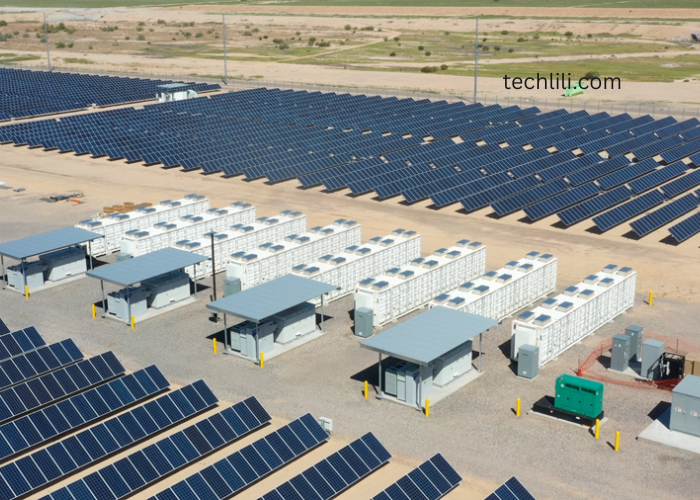
The development of the solar industry has brought with it a powerful complement to the form of energy storage. Known as solar plus storage, this pairing allows homes, businesses, and utilities to store excess solar energy for use during cloudy days, nighttime hours, or grid outages. As more Americans seek energy independence and grid resilience, the demand for these systems is growing rapidly.Freedom Forever Solar, one of the nation’s expanding residential solar providers with a growing national footprint, has recognized this momentum by integrating battery-ready solutions into its services across multiple states.
The surge in solar plus storage is not only reshaping how electricity is consumed but also redefining how energy careers are being built. As this segment grows, so does the need for trained professionals who can install, manage, and optimize hybrid systems in residential and commercial settings.
Shifting Market Demand Sparks Job Growth
Storage is no longer an optional upgrade. As of 2025, roughly 35 percent of residential solar installations in the United States now include a battery component, a significant increase from less than 10 percent just five years ago. Rising electricity costs, frequent weather-related outages, and state-level incentives for grid resilience are driving the development.
This shift has led to the creation of thousands of new jobs. The solar plus storage sector now requires workers who understand both photovoltaic systems and lithium-ion battery technologies. These workers span a wide range of roles, from installation crews and electricians to software technicians and energy analysts. With the federal government’s clean energy goals accelerating deployment, industry forecasts suggest that battery-related solar jobs can double over the next three years.
Expanded Roles and Responsibilities
Installing a battery system is more complex than a standard solar panel setup. Workers must understand energy flow, load management, and system monitoring. The job does not end at installation. It extends to ensuring safe system commissioning, programming inverters, and connecting storage to home energy management systems.
These responsibilities have opened the door for specialized career paths. Field technicians can progress into battery integration specialists or storage project managers. Electricians with knowledge of backup systems are now in higher demand, especially in markets like California, Texas, and Arizona, where time-of-use rates and grid stability remain key concerns.
New Pathways for Career Switchers
The rise in storage is also inviting workers from adjacent sectors to enter the solar workforce. Professionals with experience in HVAC, electrical contracting, telecommunications, or fleet vehicle maintenance find their skill sets highly transferable. As these individuals transition, they benefit from targeted upskilling programs that focus on battery safety, energy auditing, and system diagnostics.
Many companies are supporting internal cross-training programs that prepare their workforce to meet hybrid system demands. These programs help bridge the knowledge gap and ensure that technicians can meet the technical challenges of solar plus storage integration while advancing in their roles.
Education and Training Expansions
Vocational schools and community colleges have responded to the changing landscape by offering certificates in energy storage systems, grid-tied inverter technologies, and home energy management. These programs are often stackable, meaning workers can continue to advance their credentials while gaining field experience.
Several states have also allocated clean energy funds toward technician training. Massachusetts, for example, supports programs that combine classroom learning with hands-on training in solar and storage. These regional investments ensure that the workforce grows in tandem with infrastructure needs and that employers can find job-ready talent in growing markets.
Employer Support Drives Advancement
As solar professionals’ responsibilities expand, supportive employer policies have become central to worker success and retention. Companies that offer structured upskilling, certification support, and internal mobility are attracting and keeping skilled technicians in a competitive labor market. For hybrid solar plus storage roles, continuous learning is especially important as technologies develop, and safety standards grow more complex.
Freedom Forever Reviews often highlight the company’s emphasis on career growth and training, especially in the context of expanding roles tied to energy storage. Employees have shared how mentorship programs, hands-on battery integration experience, and access to continuing education resources helped them gain the skills needed to manage more advanced installations. This kind of professional support not only strengthens job satisfaction but also builds trust in the organization’s long-term investment in its workforce.
Behind the Scenes: Logistics and Manufacturing
Not all solar plus storage jobs are on rooftops. A growing number of roles are emerging in manufacturing, inventory control, and logistics. Technicians must evaluate battery cells before deployment, manage warehousing systems, and coordinate just-in-time delivery to installation sites.
Battery production and supply chain management have also become career tracks within the clean energy sector. With domestic manufacturing incentives expanding under federal policy, more companies are sourcing materials and assembling components in the United States. This shift is generating jobs in battery cell fabrication, quality assurance, and shipping coordination.
Opportunities for Remote and Digital Work
As hybrid systems grow more complex, back-end support is needed. Monitoring teams oversee battery performance via cloud-based platforms, alerting technicians to anomalies or service needs. Data analysts interpret usage patterns to help optimize energy storage performance for customers and utilities alike.
These roles offer remote work opportunities for individuals with experience in IT, data science, or engineering. In a time when job flexibility matters, solar plus storage is proving to be a sector that embraces both hands-on and digital expertise.
Broader Impacts on Grid Resilience and Community Energy
Battery storage is not just a personal upgrade. It strengthens local energy systems. When aggregated, residential storage systems help stabilize the grid by providing distributed energy resources that utilities can tap during peak demand. Some states now offer programs where homeowners receive compensation for sharing stored energy.
This model creates demand for program managers, dispatch operators, and customer engagement specialists who coordinate these grid-sharing efforts. As solar plus storage moves beyond individual households into community-scale initiatives, the job opportunities can extend across technical and administrative domains.
A Technology That Builds Careers
The rise of solar plus storage represents a major shift in how Americans think about and interact with energy. For job seekers, it offers a path into a stable, meaningful career that blends technical skills with environmental purpose. For communities, it brings economic development, resilience, and increased energy autonomy.
As storage technologies continue to improve and affordability increases, companies across the industry are preparing their workforce to meet rising demand. With training, support, and a growing network of skilled professionals, solar plus storage is not just improving how energy is stored. It is shaping how energy careers are being built for the future.




